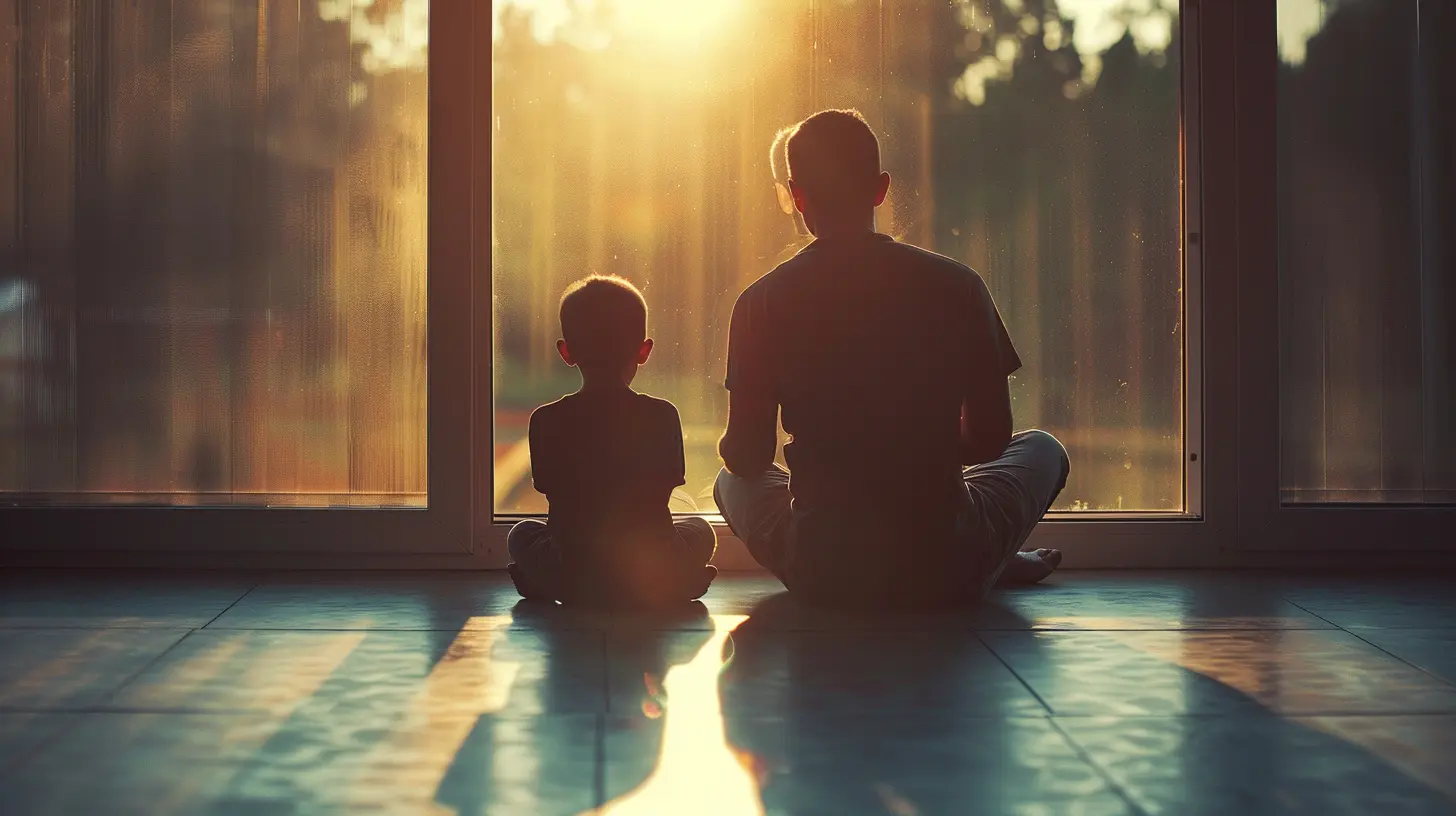Teaching Your Child Responsibility When You're Parenting Alone
8 September 2025
Parenting on your own is like being the captain of a one-person ship in choppy waters. There's no co-captain to take the wheel when you're exhausted, but there's still a bright, wide-eyed passenger (your child) watching your every move. One of the biggest lessons you’ll want them to learn during this journey? Responsibility. It's not just about chores and routines—it's about shaping a capable, confident, and compassionate human being.
Let’s dive into how you can teach your child responsibility, even when you’re doing it solo. Spoiler alert: it’s totally doable!
Why Responsibility Matters (Especially in a Single-Parent Household)
Responsibility is more than just a buzzword. It’s the foundation of independence. For your child, learning to be responsible not only builds confidence but also teaches them the value of hard work, the importance of honesty, and how to deal with consequences.When you’re the only adult in the house, there’s no one balancing out the parenting load. So, teaching your child to pitch in, make smart decisions, and be accountable becomes even more essential. You’re not just raising a child—you’re raising your teammate.
Start with Small, Age-Appropriate Tasks
Toddlers (2-4 years old)
At this age, everything is a game. Use that to your advantage! Toddlers love mimicking you, so let them "help" with simple things like putting toys away or matching socks. Sure, it’s faster if you do it yourself, but giving them ownership helps them feel proud and competent.Early Childhood (5-8 years old)
Now’s a good time to assign regular chores—think making the bed, feeding pets, setting the table. Keep the expectations clear and consistent. Let them know it’s their job, not a favor. Use rewards sparingly. Intrinsic motivation (that internal "feel-good" about a job well done) is the long game.Tweens and Teens (9+ years old)
By this age, kids can—and should—be handling more responsibility. Managing homework, doing laundry, making their own lunches, maybe even helping with younger siblings. The more they contribute to the household, the more they understand the effort it takes to keep things going.
Be Clear About Expectations
Kids thrive on structure—even if they complain about it. Set clear expectations around what needs to be done, when, and how. Create a simple chore chart or checklist. Keep it visible. No guessing games!Use language like, “It’s your responsibility to…” rather than “Can you please...” It sounds small, but wording matters. You're framing these tasks as their duty, not just something they help with.
Lead by Example
Let’s face it: kids are always watching. If you leave dishes in the sink for days or procrastinate on important stuff, they’ll pick up on that. On the flip side, if they see you handling responsibilities like bills, household chores, and even self-care without constant complaining, they’ll absorb that too.Modeling responsibility is half the battle. Share your thought process with them occasionally: “I’m tired, but I still need to grocery shop so we have food for the week.” That simple statement shows follow-through and commitment.
Let Them Face Natural Consequences
This one’s tough, especially as a solo parent—it’s tempting to shield your child from every bump. But real growth comes when they experience the consequences of their actions.Forgot their homework? Don’t rush it to school. Left the lunchbox at home? Let them learn what skipping a meal feels like. These small stumbles are learning moments. They’ll remember the consequences far longer than your lecture.
Involve Them in the Family Narrative
Being a single parent means everyone in the household needs to function as part of a team. When you involve your child in family problem-solving or decision-making, they’ll feel more invested in its success.Talk about the realities of your situation (in age-appropriate ways, of course). Say something like, “Since it’s just the two of us, we both have to do our part to keep things running smoothly.” That inclusion builds ownership and a sense of purpose.
Use phrases like:
- “We’re a team.”
- “I need your help.”
- “You play a big part.”
It’s empowering—they’re not just a passenger on the ship anymore; they’re helping steer it.
Celebrate Effort, Not Just Results
Responsibility isn't about perfection—it’s about effort.If your child tries to do the dishes but misses a spot or forgets to rinse properly, resist the urge to redo it immediately. Instead, thank them for the effort and use it as a gentle teaching moment.
Praise things like:
- Following through without reminders
- Being proactive
- Owning up to mistakes
Let them know their effort is seen and appreciated. This builds intrinsic motivation and self-worth.
Create Routines and Stick to Them
Let’s be real: when life is chaotic (which it often is in a single-parent home), routines are the glue that holds it all together.Establish routines for mornings, after school, and bedtime. Consistency is key. It gives kids a sense of control over their daily lives, and the repetition reinforces responsibility without you having to nag constantly.
Need help getting started? A whiteboard or planner can do wonders. Visual cues often work better than verbal reminders.
Use Tools and Tech to Your Advantage
Apps like Cozi, ChoreMonster, or even regular phone reminders can help keep your child on track. If your teen is already glued to their phone, use it as a tool rather than a source of conflict.Set shared calendars, schedule reminders, and create to-do lists together. Make it collaborative, not dictatorial.
Pro tip: Let them pick the app they'll use. When they’re part of the decision, they're more likely to use it.
Teach Financial Responsibility Early
Want to raise a responsible adult? Teach them about money.Even young kids can grasp the basics: earning, saving, spending. Give them a small allowance tied to chores or responsibilities—not as a "payment" but as a way to understand that money is earned, not just handed out.
As they get older, involve them in budgeting for groceries or planning for family outings. Show them real-life scenarios. It’s like a mini life boot camp—and it’s incredibly effective.
Avoid Guilt-Based Parenting
This one hits close to home. It’s easy to overcompensate when you’re parenting solo. You might feel bad about working long hours or not being able to provide everything two parents could. But trying to make up for it by easing off expectations only hurts in the long run.Giving your child responsibilities is not a punishment. It's a gift. It prepares them for real life. Fight the urge to “make it easier” on them. Instead, focus on making it consistent, fair, and filled with love.
Encourage Open Communication
Responsibility doesn't have to be heavy or formal. Keep the conversation flowing at dinner, during car rides, or while folding laundry together. Ask open-ended questions like:- “How did it feel to finish your chores without reminders?”
- “What’s one thing you want more responsibility for?”
These chats reinforce the idea that responsibility is normal, not burdensome. They're also great checkpoints to see how your child’s developing independence and confidence.
Be Patient—Growth Takes Time
There will be setbacks. There will be eye-rolls. There will be days when it feels like nothing is sticking. But don’t give up. Responsibility isn’t learned in one conversation or after one chore. It’s a lifelong lesson.Every reminder, every consequence, and every high-five for a job well done adds up. Just like compound interest, the investment you make now pays off big time later.
Final Thoughts
Teaching your child responsibility when you're parenting alone might feel like climbing a mountain in flip-flops. But you’re not alone in this challenge. Many single parents have not only survived this journey but thrived—raising resilient, respectful, and responsible kids.Remember: it's not perfection you're aiming for—it's progress. Every little step your child takes toward owning their actions, following through on tasks, and contributing to the household is a win.
So keep modeling, keep encouraging, and keep those expectations high. You’ve got this.
all images in this post were generated using AI tools
Category:
Single ParentingAuthor:

Noah Sawyer
Discussion
rate this article
1 comments
Hope McInnes
Navigating parenting alone can be overwhelming, but instilling a sense of responsibility in your child is a powerful gift. Remember to celebrate small victories and be patient with both yourself and your child. You're doing an incredible job, and every step you take toward teaching responsibility helps build their confidence and independence.
September 13, 2025 at 3:03 AM

Noah Sawyer
Thank you for your encouraging words! Celebrating small victories truly makes a difference in both our journeys.


